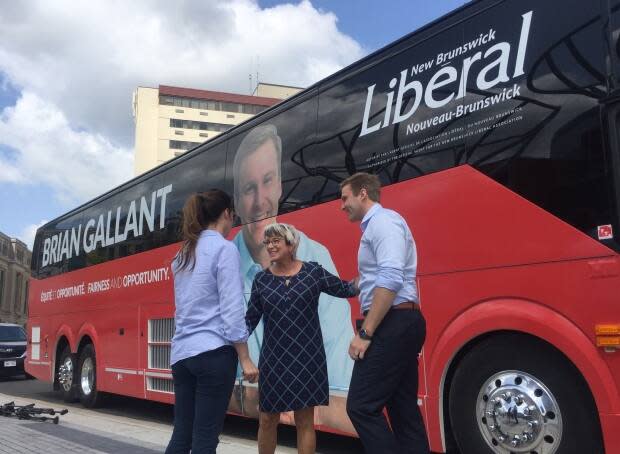Provincial Liberal's cash advantage erased after 2018 election
The New Brunswick Liberal party, headed by former leader Brian Gallant, ran a $1.2 million deficit in 2018 and emerged from the provincial election not just in opposition, but in a significantly weakened financial condition, new figures show.
Liberal election year spending coupled with fundraising problems fueled the record shortfall, which could haunt the party come the next election.
The deficit depleted a significant financial advantage Liberals had built up over New Brunswick Progrressive Conservatives and will ensure the two are more evenly matched with resources in their next province-wide contest.
"There is no longer this giant cash advantage," said UNB business instructor David Marshall, who reviewed both Liberal and PC financial statements from 2018.
"If you look back at 2017 the cash advantage (for Liberals) was roughly $1.7 million and now it's down to a $195,000 advantage."
Liberal financial records for 2018 were released by Elections New Brunswick just this week - five months late - and showed, while the party outspent Progressive Conservatives in the election year by more than $800,000 to try to retain government, it raised less money from donors to pay its bills than the PCs did.
Tight new contribution rules passed by the New Brunswick Legislature in 2017 hindered fundraising for all parties but had its largest impact on Liberals.
Corporate and union political donations are now banned in the province and the limit on individual donations was cut in half to $3,000 per year.
The Liberal party financial returns show it took in $997,000 in net contributions in 2018. That was well below the $1.26 million donated to Progressive Conservatives under the same restrictive rules and 30 percent less than donors gave Liberals in the 2014 election year

It is also the lowest amount raised by a New Brunswick governing party facing an election since 1982, when Richard Hatfield's Progressive Conservatives took in $998,000.
The Liberal Party's acting executive director Greg Byrne said the new restrictions on donations, which all parties in the Legislature voted in favour of in the spring of 2017, took a toll. Liberals took in $728,000 in corporate donations in 2014 and had a difficult time replacing that money.
"It was a major change for fundraising so I think parties have to adapt to that," said Byrne.
"We're going to have to raise more money to fight the (next) election but we're confident that we've always been able to raise money in the past and we'll be able to raise money going forward as well."
Because it raised more and spent less, the PCs financial return shows the party turned a small surplus in 2018 of $3,469 - a stark contrast to the Liberals, although some of that was caused by election expense reimbursements from the province that the two parties account for differently

But it's not all bad news for Liberals.
David Marshall says, despite the large swing in fortunes between the two parties in 2018, Liberals still had more money in the bank than PCs at the end of that year - just not the enormous advantage they used to enjoy.
"All is not lost for the Liberals because they've got more cash and no loans," said Marshall. "But they wouldn't want to do this again"


